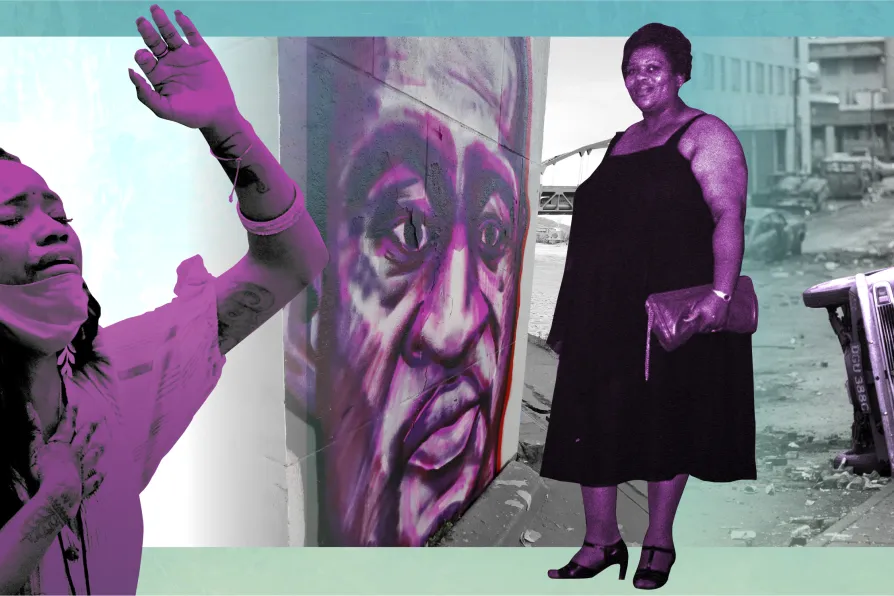Channel 4’s Dirty Business shows why private companies cannot be trusted with vital services like water, says PAUL DONOVAN
The killing of George Floyd is part of a broader pattern of state violence
Police violence is bound up with the class system and the place black people occupy in our class system is in turn bound up with our history, says NICK WRIGHT

 A mourner at George Floyd’s funeral service on Tuesday, a mural to the murdered man in Pittsburgh, Cynthia Jarrett (standing), who died during a police search of her north London home in 1985 and an upturned car in the aftermath of the Tottenham riots after her death
A mourner at George Floyd’s funeral service on Tuesday, a mural to the murdered man in Pittsburgh, Cynthia Jarrett (standing), who died during a police search of her north London home in 1985 and an upturned car in the aftermath of the Tottenham riots after her death
HOW should we understand the events in the United States? And in our own country?
Over 10,000 people have been arrested in the US during protests against police racism and violence.
When such events simultaneously occur across dozens of cities then any analysis which attributes the cause of such disorder to a conspiracy by “antifa” or any other imaginary category of subversives itself is fantasy.
Similar stories

JESSICA WIDNER explores how the twin themes of violence and love run through the novels of South Korean Nobel prize-winner Han Kang

In an exhibition of the graphic art of Lorna Miller, MATT KERR takes a lungful of the oxygen of dissent

NICK WRIGHT delicately unpicks the eloquent writings on art of an intellectual pessimist who wears his Marxism lightly

JOHN GREEN surveys the remarkable career of screenwriter Malcolm Hulke and the essential part played by his membership of the Communist Party










